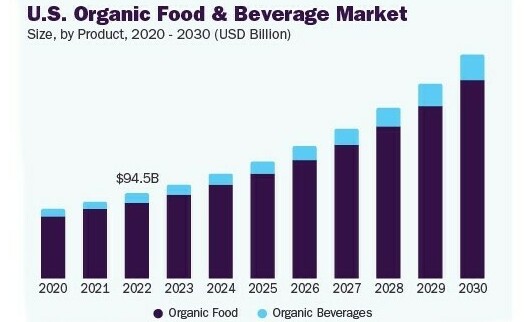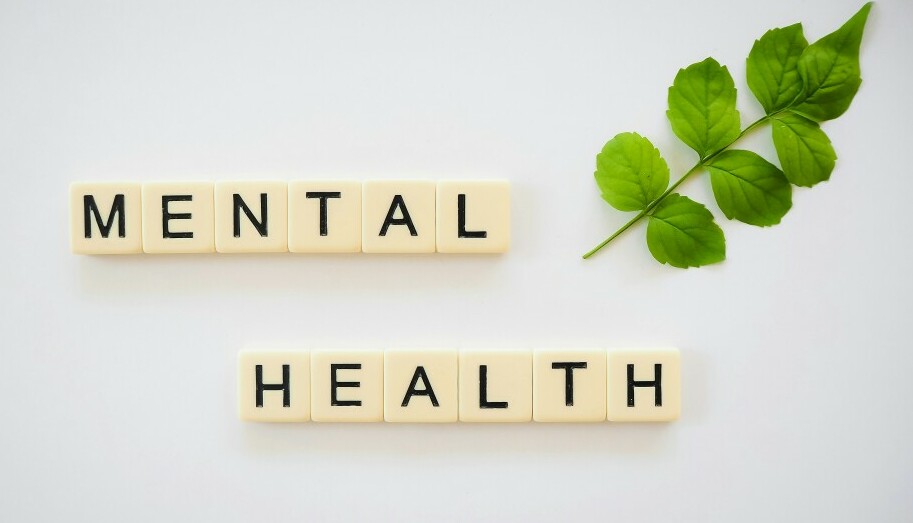
Today, I’m going to be talking about organic nutrition, a choice that’s quickly going from niche to necessity for many health-conscious consumers.
You’ve probably heard the buzz about going organic, but it’s not just a trendy diet fad; it’s gaining ground for bona fide reasons. I’ll be doing my very best to help you understand not only what ‘organic’ really means, but also the tangible benefits that come with adopting an organically based diet, both in the short-term and the long-term.
We’re not just about physical health either, it’s also about the mental clarity and emotional stability that organic foods can foster.
So, what does ‘organic’ signify? No, it’s not just a flashy label to mark up prices at your local supermarket. In its essence, organic refers to the way agricultural products are grown and processed.
For a product to be certified organic, it has to meet specific standards. These typically include restrictions on the use of synthetic pesticides, herbicides and fertilizers, the prohibition of genetically modified organisms (GMOs), and a commitment to animal welfare and environmental conservation.
In fact, there’s a whole regulatory framework dedicated to ensuring that anything labeled ‘organic’ meets these stringent criteria.
This is NOT a Short-Term Fad
There are many people around who view the whole organic food lifestyle with a totally cynical eye.
To them, it’s just a fleeting fad, something for the hippy types to get excited about and by next year it’ll be long gone. This is definitely not the case! Take a look at the chart below:

That gives some idea of just how things are changing. Yes, some of those figures are projections, but they’re based on very sound research
So Let’s Get Started With Some Obvious Benefits
Now, let’s dive into the immediate perks of going organic.
Better Tasting Food And Improved Palette
Imagine consuming foods that are free from harmful chemicals. That’s a pretty refreshing thought, right?
You see, one of the standout benefits you’ll notice shortly after making the switch is that your palate begins to appreciate the richer, more authentic flavors that come with organically grown produce.
Improved Overall Wellbeing
If you’re someone who’s sensitive to additives and preservatives, you’re definitely going to find out about the difference an organic diet can make in your daily well-being—fewer headaches, better digestion, and a noticeable spike in energy levels are all just part of the organic package deal.
Thinking long-term? The perks of organic nutrition don’t just drop off after the initial honeymoon phase. By consistently opting for organic foods, you’re making a bet on your long-term health in several ways. We’re talking about a decreased risk of chronic diseases, improved overall bodily function, and a potentially positive impact on life expectancy. And while the physical benefits are key, the mental advantages play a huge role too. Clarity of mind and a more stable mood are often unsung heroes in the organic food narrative.
Physical Prosperity through Organic Choices

You might be wondering exactly how organic nutrition benefits your body in the most tangible ways. Well, let’s start with the basics: organic foods are often richer in nutrients compared to their conventionally grown counterparts, simply because they are produced without the use of synthetic pesticides, fertilizers, or genetically modified organisms (GMOs). This means you’re getting a cleaner form of nutrition that your body can love and use more efficiently.
When it comes to organic nutrition, it’s not only about what’s in the food that counts, but also what’s not. With reduced exposure to harmful pesticides and chemicals, your body has a lesser toxic load to handle. This can lead to improvements in numerous bodily functions, especially your immune system which is less burdened by fighting off these unwelcome substances. Don’t overlook the digestive system either; without additives and preservatives, many people find organic foods easier to digest, giving you more energy to enjoy your day.
You can always adjust your approach down the road, but starting with an organic diet can be a proactive step in disease prevention and management. Organic products have repeatedly been linked to lowering the risk of certain diseases, including cancers, due to the reduced levels of pesticide residues. Moreover, many find that organic produce simply tastes better, which can lead to more fruit and vegetable consumption — a known factor for maintaining health.
What’s happening very quickly in today’s world is that more studies are emerging to bolster these claims. Research has begun to paint a clearer picture, revealing that certain organically grown foods contain higher levels of antioxidants and other health-boosting compounds than conventionally grown foods. With antioxidants known for their role in combating free radicals — culprits of oxidative stress and cellular damage — it’s a significant discovery that invites you to reconsider your daily food choices.
Having covered those bases, it’s time to move into how these physical benefits of an organic diet have a profound influence not just on your body, but on your mental health as well. Next up, you’re going to find out about the intriguing connections between what you eat and how you feel.
The Psychological Edge: Mental Clarity and Mood Enhancement

I’m going to walk you through the fascinating world of how what we eat affects not just our bodies, but our minds too. This isn’t just about feeling good physically, it’s also about supporting our mental clarity and emotional health. Have you ever wondered if what’s on your plate can really influence your mood or cognitive abilities?
Guess what? It can.
The mind-gut connection is more significant than you might think. In my opinion, understanding this link is crucial for mental well-being. There’s a lot of opportunity in harnessing the power of organic foods to possibly enhance brain function. So, let’s explore how organic choices might not only keep your body fit, but also keep your mind sharp.
Research diving into organic diets and cognitive functioning is pretty groundbreaking. Studies suggest that organic foods, rich in antioxidants, can combat oxidative stress – a villain in the aging brain story. If you want to potentially ward off cognitive decline, choosing organic might be a wise strategy.
Your mood also gets a lift from organic nutrition. Organic diets often have higher levels of nutrients that play a key role in regulating mood, such as magnesium and serotonin. So while you indulge in that organic avocado or spinach, you’re also fuelling your brain with mood-boosting goodness.
I’ve heard plenty of personal accounts that highlight a shift in mental states with the adoption of organic eating. People often report feeling more ‘present’, less ‘foggy’, and overall more balanced. While individual experiences may vary, the message is consistent: what we eat can influence how we feel and think.
Nurturing the Future: A Step Toward Collective Well-being Through Organic Nutrition
I’m going to shine a light on something often overlooked: the broader impact of our dietary choices. Organic nutrition isn’t just a personal choice; it paves the way for societal health and environmental sustainability. Every bite of organic produce you take is a vote for a more sustainable future.
In the journey of advocating for organic foods, it’s crucial to understand the benefits that ripple through our communities and ecosystems. Organic farming practices reduce the chemical load on our land and waterways, creating a healthier habitat for wildlife and a safer environment for farmworkers and their families.
One of the biggest discussions around organic food is its accessibility and affordability. If you want to make organic choices, you can start small – opting for organic alternatives for fruits and vegetables you consume most. Also, supporting local organic farmers can help foster community-level change.
Remember, your first attempt at shifting to an organic lifestyle doesn’t need to be all-or-nothing. It’s about making more informed choices when you can. Choose something that resonates with you, whether that’s starting with organic snacks or planning one organic meal a day.
Ultimately, choosing organic is about nurturing not just ourselves, but the generations to come. By opting for an organic diet, we contribute to a movement that prioritizes health, biodiversity, and the sustainability of our food systems. As I wrap this up, I really hope that you feel inspired to consider how your food choices can make a difference – for your well-being, your community’s vitality, and Earth’s future.
